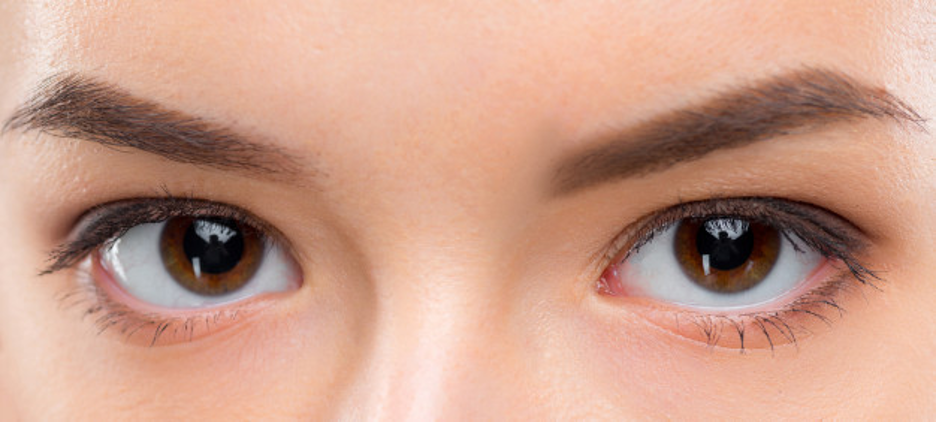Have you ever thought about what will happen if you lose your vision someday? What will happen if one day you wake up and you can’t see anything anymore with your eyes? Yes, loss of vision can be really scary. Well, you should know that losing vision to at least some degree is really common among people, that’s why you will see so many people wearing glasses around us. There are an estimated 285 million people out there all over the globe with visual impairment to some degree, while around 39 million of them being totally blind.
Among the five senses you have, to you, the most important one might be your vision. There is no need to tell you how dependent we are on our eyes. Even though we are able to see through our eyes, optical nerves play an important role in our vision. So, our ocular health doesn’t solely depend on the eyes, the optical nerves are included in this too. If you don’t take proper care of your ocular health, you might start losing your vision too. At least losing vision to some degree might become imminent.
Vision loss generally occurs very gradually, but some type of vision loss might be very sudden to occur. When someones’ ocular health declines, they get exposed to vision loss, either partial vision loss or complete vision loss. If someone falls victim to complete blindness, they won’t be able to see anything, including light. But if anyone just faces partial blindness as most people do, then they will just have limited vision. This declination of ocular health can happen due to many different reasons such as macular degeneration, cataracts, diabetic retinopathy, glaucoma, etc. Let’s have a look at a few reasons for which your ocular health might decline.
Cataracts
You might sometimes feel that your eye lens has gotten clouded by something, and this condition is known as a cataract. This is one of the most common causes of age-related vision loss. Along with old age, different eye injuries, too much exposure to the sun, diabetes, and other factors can cause cataracts in the eye. If someone gets a cataract in their eyes, they might face these symptoms-
- Double vision
- Cloudy vision
- Problems with glare
- Reduced color intensity
- Problems seeing at low light during the night
Macular Degeneration
This is a kind of eye disorder that can affect your central vision. We use our central vision for our day-to-day tasks such as driving, reading, etc., and our sharp central vision helps us to see things clearly. There is a part in our eye retina, which is called the Macula, and when an age-related degeneration occurs in the macula, it gets known as macular degeneration. This is the largest cause of vision loss in people over 50 years of age.
Macular degeneration can be of two types, dry and wet. Wet age-related macular degeneration or AMD is a more advanced problem than the dry one. A person can have wet AMD after having fried AMD. Dry AMD doesn’t cause blin dress, but it can affect the central vision drastically. On the other hand, wet AMD can actually cause blindness. If blood vessels grow behind the macula of the eye, the wet AMD can occur. And dry AMD is caused by drusen that is a waste material produced by the metabolism process. One might face these symptoms when they face dry AMD-
- Difficulty reading anything or seeing details
- Faded colors
- A blurred spot in the center of the vision that might become bigger with time
- Blurred vision
And the symptoms of wet AMD are-
- A blurred spot in the center of the vision that might become bigger with time
- Straight lines might look wavy
Glaucoma
There are several eye diseases that can damage one’s optic nerves that are located at the back of the eye. There are several types of glaucoma and glaucoma can cause both blindness and vision loss. Glaucoma is more common in people aged over 60. It can also occur in people who have a history of glaucoma in their family. There might not be any symptoms of glaucoma at first. But one of the most common symptoms is losing peripheral vision, or in other words, the side vision of your eyes. You must go through regular check-ups if you want to keep yourself safe from glaucoma. Apart from that, red-eye, severe eye pain, blurry vision, nausea, etc. can be symptoms of glaucoma too.
Some Other Reasons
There might be many other causes behind the declination of one’s ocular health. These reasons might include-
- Eye Injury
- Lazy Eye
- AN uncorrected refractive error
- Trachoma, which is a bacterial infection in the eye
- Thyroid Eye Disease
- Stroke
- Severe Eye Infection
- Dry Eye
- Retinal Detachment
- Vision problems that one has had since they were born or congenital causes
- Presbyopia
Final Words
All these reasons can be caused by many external factors apart from age. You need to make sure that you are taking proper care of your ocular health, not being too hard on your eyes by not having enough sleep, or continuously working in front of mobile or computer screens. Also, make sure that you are wearing your glasses or taking your medicines properly if you are prescribed any. Maintaining these things can help you a lot with your ocular health.



 Bitcoin
Bitcoin  Ethereum
Ethereum  Tether
Tether  XRP
XRP  Solana
Solana  USDC
USDC  TRON
TRON  Cardano
Cardano  Lido Staked Ether
Lido Staked Ether  Avalanche
Avalanche  Toncoin
Toncoin